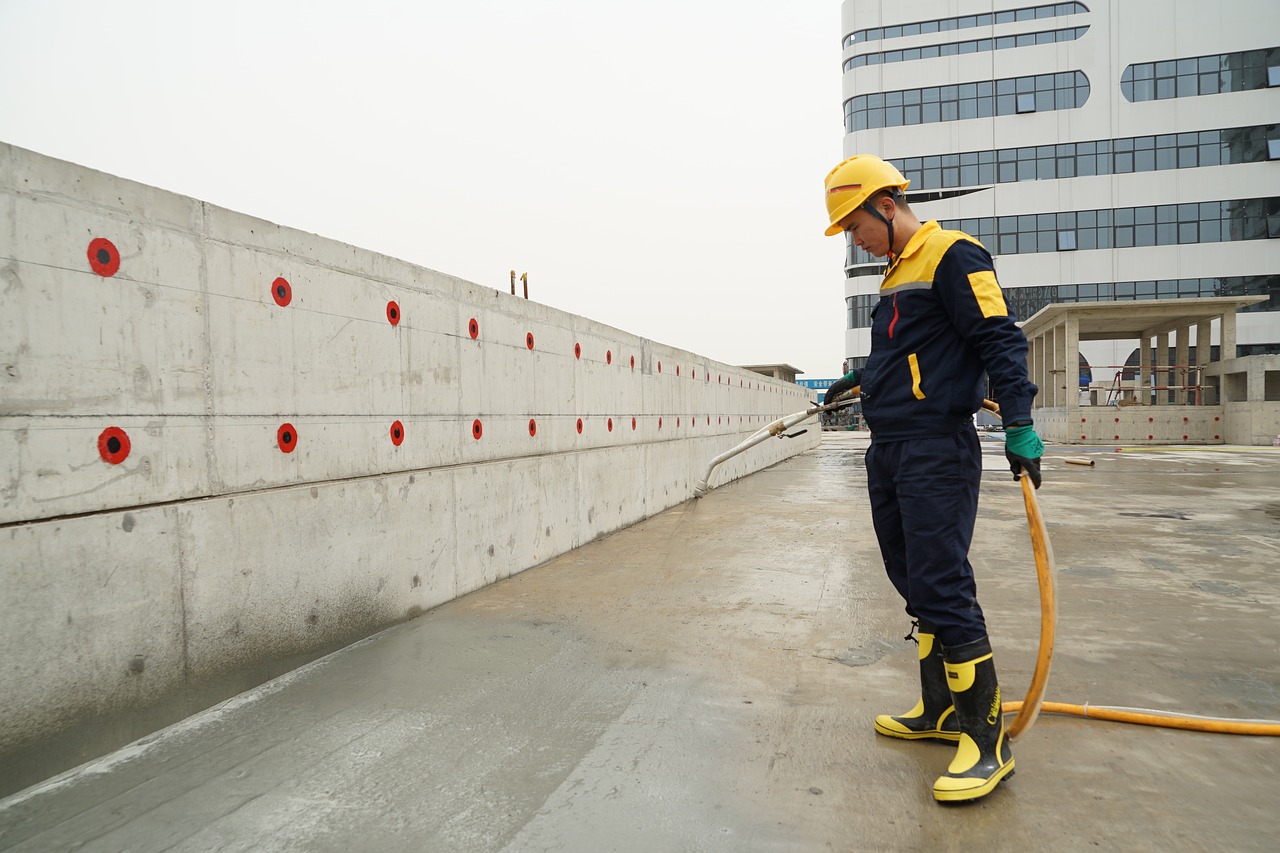When setting up or renovating a warehouse, one of the most critical decisions you’ll make is choosing the right flooring. It may not be the most exciting aspect of warehouse design, but it plays a significant role in efficiency, safety, and long-term maintenance costs.
Your warehouse floor needs to withstand heavy machinery, continuous foot traffic, potential chemical spills, and even harsh environmental conditions. The wrong choice could lead to frequent repairs, safety hazards, and increased operational costs.
In this guide, we’ll take a deep dive into the different types of warehouse flooring, their pros and cons, and how to choose the right one for your business needs.
Why Warehouse Flooring Matters More Than You Think
Warehouse flooring is the foundation of your operations. It directly impacts productivity, worker safety, and maintenance expenses. A well-chosen floor can:
- Reduce Accidents – Slips and falls are common in warehouses, but the right flooring minimizes these risks.
- Support Heavy Equipment – Your floor should be strong enough to handle the weight of forklifts, pallet jacks, and storage racks.
- Improve Efficiency – A smooth, even surface allows for seamless movement of goods, reducing downtime.
- Save Money on Repairs – A durable floor lasts longer and requires fewer repairs, cutting long-term costs.
Key Factors to Consider When Choosing Warehouse Flooring
1. Load Capacity and Durability
Warehouses often store heavy goods, and machinery such as forklifts constantly moves across the floor. You need a material that can handle the pressure without cracking or wearing down quickly.
2. Resistance to Chemicals and Moisture
If your warehouse deals with liquids or chemicals, you’ll need flooring that resists corrosion and doesn’t absorb moisture. This is especially important in industries like pharmaceuticals, food storage, or manufacturing.
3. Ease of Maintenance and Cleaning
Warehouses can get dirty fast. Dust, oil spills, and general debris accumulate quickly. Your flooring should be easy to clean and maintain without requiring frequent deep cleaning.
4. Temperature and Environmental Factors
Does your warehouse experience extreme heat or cold? Some flooring materials expand or contract with temperature changes, leading to cracks or uneven surfaces.
5. Safety Features
Slip-resistant flooring is crucial to prevent workplace injuries. Look for options that provide grip, even in wet or oily conditions.
Best Flooring Options for Warehouses
1. Concrete Flooring
Overview
Concrete is one of the most widely used warehouse flooring materials due to its durability, affordability, and ease of maintenance. It’s a strong and long-lasting option that can handle heavy loads and constant traffic.
Pros:
✔ Extremely durable and long-lasting
✔ Cost-effective compared to other materials
✔ Can withstand heavy machinery and high traffic
✔ Low maintenance and easy to clean
Cons:
✖ Can crack over time if not properly reinforced
✖ Susceptible to moisture damage without waterproofing
✖ Can be hard on workers’ feet and joints
Concrete is ideal for warehouses that need a sturdy, long-term flooring solution. However, if your facility experiences frequent moisture exposure, consider applying a waterproofing treatment to prevent long-term damage.
2. Epoxy Flooring
Overview
Epoxy flooring is a coating applied over concrete floors to create a seamless, smooth, and highly durable surface. It is widely used in industrial and commercial warehouses because of its resistance to chemicals, impact, and wear.
Pros:
✔ Extremely durable and scratch-resistant
✔ Resistant to moisture, chemicals, and spills
✔ Non-slip surface for improved safety
✔ Enhances the look of warehouse flooring
Cons:
✖ Requires professional installation
✖ Can be expensive upfront
✖ Might need re-coating every few years
Epoxy flooring is a fantastic option for warehouses that need a strong, waterproof, and chemical-resistant surface. If you’re looking for long-term durability, this is one of the best choices.
3. Vinyl Flooring
Overview
Vinyl flooring is known for its ease of installation, affordability, and resistance to water and chemicals. It comes in sheets, tiles, or planks, making it a flexible choice for different warehouse needs.
Pros:
✔ Water and chemical resistant
✔ Easy to install and replace
✔ Available in various colors and textures
✔ Provides some cushioning for workers’ comfort
Cons:
✖ Not as durable as concrete or epoxy
✖ Can be damaged by heavy loads
✖ May require frequent replacement in high-traffic areas
Vinyl flooring works well in warehouses that deal with moderate traffic and occasional spills, but it may not be the best choice for extremely heavy loads.
4. Rubber Flooring
Overview
Rubber flooring is ideal for warehouses where worker safety and comfort are a priority. It provides shock absorption and noise reduction, making it perfect for facilities with frequent foot traffic.
Pros:
✔ Slip-resistant, reducing workplace accidents
✔ Comfortable for workers who stand for long hours
✔ Reduces noise levels
✔ Resistant to minor impacts
Cons:
✖ Higher initial cost than other materials
✖ Not suitable for very heavy machinery
✖ Can wear down faster in high-traffic zones
This flooring option is often used in warehouses with a lot of manual labor, packing stations, or areas with minimal heavy equipment.
5. Polished Concrete Flooring
Overview
Polished concrete is an enhanced version of standard concrete. It’s ground and polished to create a smooth, shiny, and highly durable surface.
Pros:
✔ Extremely durable and resistant to wear
✔ Moisture and chemical resistant
✔ Provides a sleek and modern finish
✔ Low maintenance and easy to clean
Cons:
✖ Can be slippery when wet
✖ Requires periodic re-polishing
✖ More expensive than standard concrete
If you need a long-lasting, low-maintenance flooring solution, polished concrete is an excellent choice, especially when paired with waterproofing.
The Importance of Warehouse Waterproofing
Regardless of which flooring type you choose, waterproofing is essential to ensure longevity. Warehouses often deal with water leaks, humidity, and chemical spills that can degrade flooring over time.
If you operate in Dubai, working with the best waterproofing company in Dubai can help protect your warehouse floor from moisture damage. Waterproofing contractors for warehouses apply coatings that make flooring resistant to spills and leaks, increasing durability and reducing maintenance costs.
Waterproofing Benefits:
- Prevents cracks and deterioration caused by moisture
- Reduces mold and bacteria growth in humid conditions
- Extends the lifespan of your flooring
- Makes cleaning easier and more efficient
Final Thoughts: Choosing the Right Flooring for Your Warehouse
Choosing the perfect flooring for your warehouse is a long-term investment that impacts your operations, maintenance costs, and worker safety.
Here’s a quick recap to help you decide:
- For maximum durability → Concrete or polished concrete
- For chemical resistance and waterproofing → Epoxy flooring
- For easy installation and affordability → Vinyl flooring
- For worker comfort and safety → Rubber flooring
Regardless of which flooring you choose, warehouse waterproofing in Dubai is crucial for protection against moisture, spills, and damage. Working with professional waterproofing contractors for warehouses will ensure your flooring remains in excellent condition for years.
With the right choice and proper maintenance, your warehouse flooring can support smooth and efficient operations for decades to come.

